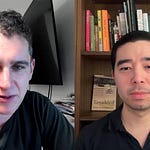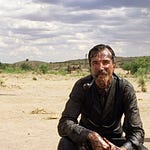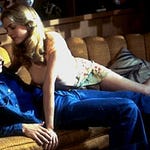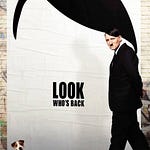Chris Nicholson joins me to talk about Breaking Bad, Seasons 1 and 2, which we both recently rewatched for the first time in over a decade.
The entire experience helped demonstrate to us the fallibility of memory. It’s not like this was a forgettable series. Breaking Bad was among the most memorable shows that either of us had ever seen. Yet after a decade, while we remembered major developments like certain death scenes and the ultimate fates of the main characters, many strings that tie together various aspects of the plot had been lost to both of us.
Fair warning: the conversation includes spoilers about Season 1 and Season 2. We also didn’t go out of our way to avoid spoilers for later seasons of Breaking Bad or the entirety of Better Call Saul, although, as it turned out, we didn’t reveal many of them. If you haven’t seen Saul yet, you can listen to this conversation and rest pretty easy knowing that there aren’t any major spoilers. Even if you’ve only seen Season 1 and Season 2 of Breaking Bad but not Seasons 3-5, I don’t think there are many points in the discussion where we explicitly mention what happened in later episodes, so you may be able to enjoy this podcast without having the rest of the series ruined.
What struck me most about Season 1 is how we can understand Walt as a conscientious objector to therapy culture. I had forgotten his initial decision not to proceed with cancer treatment. He wanted to simply die and be done with it, and his greatest fears involved being pitied or taken care of by others. And, in light of all that subsequently happened, could it not be argued that he was correct all along? Think about all the lives that could’ve been saved if they had left the man alone!
In my view, Walt shows himself to be something of a misanthrope, at least if we understand his character from a more feminine perspective. He only seems truly happy when focusing on some technical or scientific issue — installing a new water tank, cooking meth, building a new battery from scratch, etc. It’s in these moments alone that he’s able to bond with other people, either over a shared interest or by being able to explain to them some aspect of how the world works. An extreme version of the object-focused male mind, in contrast to people-focused female traits. Throughout the series we see the recurring themes of childlike wonder and the love of science that are commonly associated in our culture with figures like Bill Nye and Neil deGrasse Tyson, but without the liberal preaching.
Chris brings up the hostility of fans towards Skyler, and he’s correct it doesn’t make sense from the perspective of Christian morality. But from another view, she’s doing her best to impose her female instincts onto him: try to live as long as possible, don’t worry about being a burden on others or depending on their charity, don’t cook meth if it’s against the law. This can easily be seen as a story of toxic masculinity. The protagonist would rather burn the world down than sacrifice his pride. That’s what our heads say, but the fan reaction to Skyler and sympathy for Walt show that the heart feels differently.
At first glance, it’s Hank who represents toxic masculinity, but scratch beneath the surface and, as Ross Douthat pointed out, he’s the hero of the show. It’s the same thing that we see in Better Call Saul, where the more likable characters aren’t necessarily the most morally upstanding. Chris pointed out some things that I hadn’t noticed about Hank, namely how he went out of his way to keep the peace by clamping down on the perception that he was unmanning Walt. In this context, we discuss all the intricacies of the scene where Walt forces his son to keep drinking by the pool.
Another part of our conversation focuses on the relationship between Walt and Jesse. Chris presents the theory that Walt keeps his protege around because he likes teaching him, and they have a kind of father-son relationship. I think that’s right, and we reflect on the younger man’s fundamental decency. I tend more towards the view that this is something of an abusive relationship, in that Jesse keeps wanting to get out of the game while Walt drags him back in.
One thing that became clearer to me on the rewatch was how it could be plausible that Walt would go from being this passive high school teacher to a drug kingpin practically overnight. I recall a flashback to the Gray Matter days, where he seems like a different man. Instead of Walt being a square his whole life and then suddenly transforming into Heisenberg, it might be that his previous experiences with Gretchen and Elliot crushed him, and getting cancer simply brought out the more risk acceptant and masculine traits that had been suppressed by years of disappointment.
Other topics touched on include whether Walt resents his son, the romance between Jesse and Jane, Jane’s father as another one of those stand-ins for decent normies everywhere, and the extent to which the Saul Goodman we see in the show is recognizable from the end of Better Call Saul. The conversation goes to almost two hours, so we cover a lot of ground. From now on, we’ll be doing one episode for each of the final three seasons.
For previous conversations on Breaking Bad and Better Call Saul, see the links below. All the discussions are between me and Chris, except where Marc Andreessen joins us, as noted. They are listed in chronological order.
Better Call Saul: S6E7, Plan and Execution
Better Call Saul: S6E8, Point and Shoot
Better Call Saul: S6E9, Fun and Games
Nietzschean or Christian? Marc Andreessen on Breaking Bad and Saul
Better Call Saul: S6E10, Nippy
Better Call Saul: S6E11, Breaking Bad













